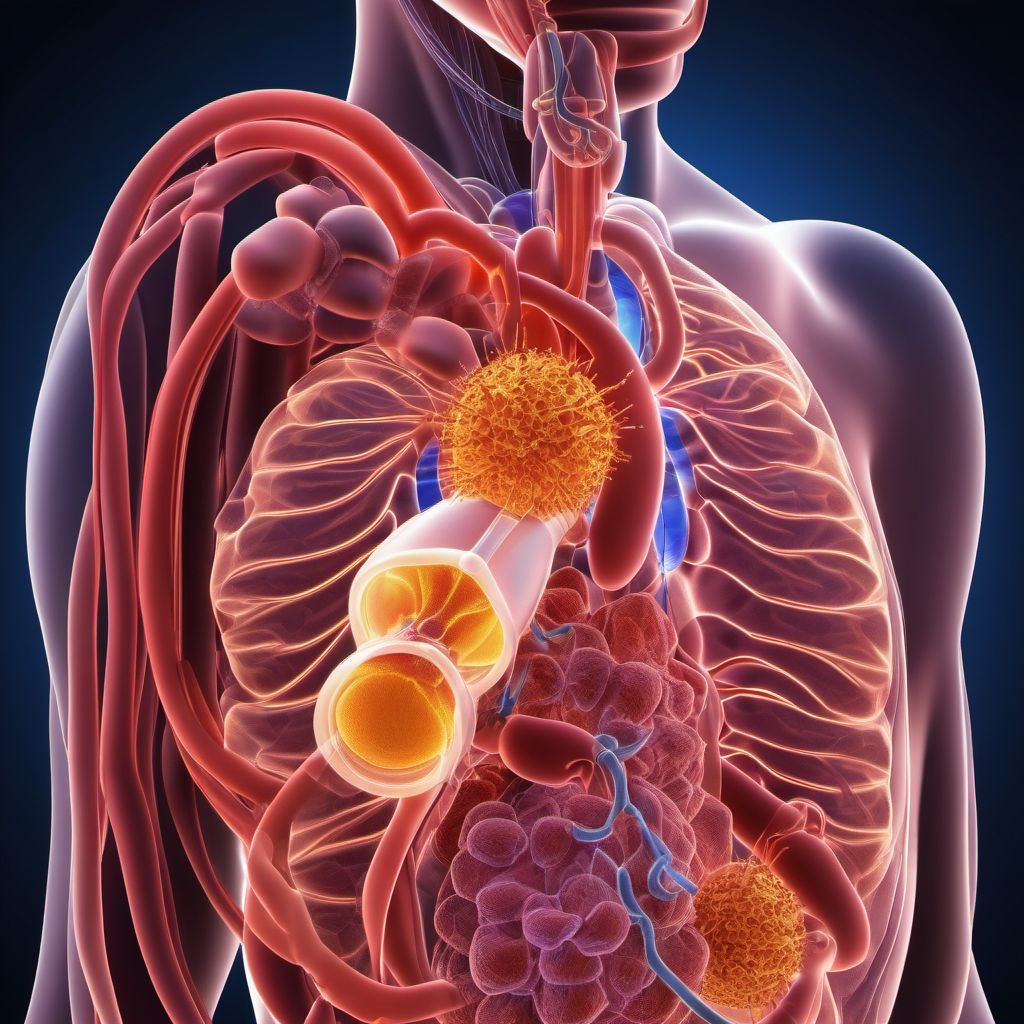
Tuberculosis of genitourinary system Save
ICD-10 code: A18.1
Chapter: Certain infectious and parasitic diseases
Tuberculosis of the Genitourinary System: Symptoms, Diagnosis, and Treatment
Tuberculosis (TB) is a bacterial infection that commonly affects the lungs, but it can also occur in other parts of the body, including the genitourinary system. The genitourinary system includes the kidneys, bladder, ureters, urethra, prostate gland, and testicles in men, and the kidneys, bladder, ureters, urethra, and cervix in women. TB of the genitourinary system is a rare but serious condition that can lead to kidney damage and infertility if left untreated.
Here are some symptoms of TB of the genitourinary system:
- Pain or discomfort in the lower back or abdomen
- Blood in the urine
- Painful urination
- Frequent urination
- In men, pain or swelling in the testicles
- In women, pain during sex or menstrual periods
If you experience any of these symptoms, it's important to see a doctor as soon as possible. TB of the genitourinary system can be diagnosed through a variety of tests, including urine and blood tests, imaging tests such as CT scans or ultrasounds, and biopsies.
Once diagnosed, TB of the genitourinary system can be treated with a combination of antibiotics for several months. It's important to take all of the prescribed antibiotics and follow your doctor's instructions closely to ensure that the infection is fully treated and doesn't come back.
Preventing TB of the genitourinary system involves preventing the spread of TB in general. This includes practicing good hygiene, such as washing your hands regularly, covering your mouth when you cough or sneeze, and avoiding close contact with people who have active TB.
In conclusion, TB of the genitourinary system is a serious condition that requires prompt medical attention. If you experience any symptoms, be sure to see a doctor right away. With proper diagnosis and treatment, TB of the genitourinary system can be successfully treated, and further complications can be avoided.
Diagnosis Codes for Tuberculosis of genitourinary system | A18.1
- A18.10, Tuberculosis of genitourinary system, unspecified
- A18.11, Tuberculosis of kidney and ureter
- A18.12, Tuberculosis of bladder
- A18.13, Tuberculosis of other urinary organs
- A18.14, Tuberculosis of prostate
- A18.15, Tuberculosis of other male genital organs
- A18.16, Tuberculosis of cervix
- A18.17, Tuberculous female pelvic inflammatory disease
- A18.18, Tuberculosis of other female genital organs